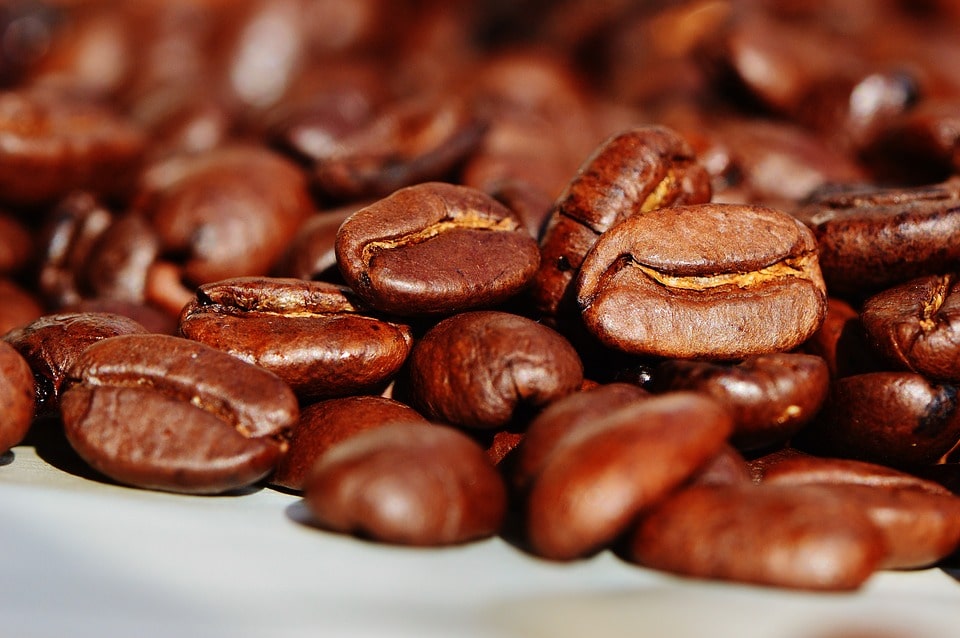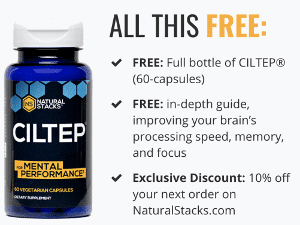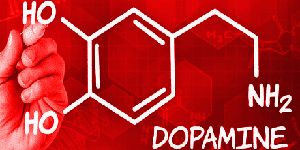Table of Contents
Caffeine – Strongest Coffee in the World
Arguably the most widespread and popular nootropic, Caffeine is noted for its cognitive enhancement abilities. The clichéd phrase don’t speak to me until I’ve had my first coffee and variants thereof are a testament to the power of this perfectly legal drug, which is unregulated in most jurisdictions.
to me until I’ve had my first coffee and variants thereof are a testament to the power of this perfectly legal drug, which is unregulated in most jurisdictions.
The Western world is a particularly large consumer of caffeine, with over 90% of North American adults consuming caffeine on a daily basis.
Some claim that caffeine is not a true nootropic because it affects the whole body rather than just the brain, but this would seem to be an argument of semantics. It is well documented for its action as a psychoactive stimulant.
As a nootropic, it stimulates short-term memory and suppresses the long-term memory. This means that users may have trouble remembering events which occurred years ago but will be particularly mentally acute in the exercises they are currently engaging in.
Taken in moderation, it’s an excellent nootropic with a relatively gentle but potent effect on its user. Those utilizing it as a nootropic should nevertheless take care to regulate their intake as prolonged heavy use can lead to unpleasant withdrawal symptoms, and extreme overdoses of caffeine can lead to sickness, psychosis and even death.
Worlds Strongest Coffee
There are a lot of Coffee’s that claim to be the ‘Worlds Strongest Coffee‘, Death Wish Ground Coffee probably being one of the most well known. The table below lists them in order of caffeine content in milligrams per 12 Fluid Ounce (A standard serving)
| Name | Size (Fl Oz) | Caffeine (mg) | |
|---|---|---|---|
| Biohazard | 12 | 928 | |
| Death Wish | 12 | 728 | |
| Black Insomnia | 12 | 702 | |
| Killer Coffee | 12 | 645 | |
| Banned Coffee | 12 | 474 | |
| Shock Coffee | 12 | 420 | |
| Military Grade Ground Coffee | 12 | 400 | |
Addiction
Withdrawal symptoms also become apparent in those who have become accustomed to taking regular doses and then stop. Caffeine tolerance does not take long to develop. Within just four days of ingesting around four espressos per day will cause the body to develop a tolerance to the sleep disturbing effects.
Regular intake leads to increased production of Adenosine receptors. The result of this increased production is two-fold. Firstly, the user no longer experiences the same effects from caffeine that she or he once did.
Secondly, the user becomes more sensitive to Adenosine, which is what causes the withdrawal symptoms such as headaches, nausea, and drowsiness. These symptoms can last for up to 5 days before abating.
The Dark Side of Caffeine
Of course, the effects of overindulging can be severe. In nature, caffeine protects plants by poisoning and paralyzing insects which try to feed on them. Humans can metabolize small amounts without becoming ill, however, in very large doses caffeine can cause sickness or even death.
Most people will experience unpleasant side effects long before they approach the point where they dangerously poison themselves or over stimulate their system if they are ingesting caffeine in its most popular medium, coffee. Those taking high dosage caffeine pills may be less able to predict the effects of the dose before they take it.

The caffeine jitters are a sign that an overdose has already occurred. The technical term for this phenomenon is caffeine intoxication. This causes anxiety, muscle fluttering, rambling speech, sweating and a rapid heartbeat amongst other symptoms. Extreme caffeine intoxication can even lead to psychosis and hallucinations. Lethal doses of caffeine are achieved in humans by consuming the equivalent of 80 to 100 cups of coffee.
Regular Caffeine Contents
Do you ever wonder which regular caffeinated drink will give you the biggest boost? Some of these drinks have an alarming amount of caffeine, which should be considered before consuming. According to the UW Health, 200 mg of caffeine daily is fairly harmless, but does depend on the person, and advise pregnant women to consume less that 200 mg per day.
They also state that caffeine is not addictive, but is habit forming; If one suddenly stops consuming caffeine, they may get headaches or become irritable. The University of Wisconsin continues to state that caffeine is best used along with food to improve concentration and productivity.
Here is a breakdown of fairly common drinks, and the caffeine content per serving size:
| Item | Size (oz) | Caffeine (mg) |
|---|---|---|
| Coffee | ||
| Generic, brewed | 8 | 95-200 |
| Generic, brewed, decaf | 8 | 2-12 |
| Generic, instant | 8 | 27-172 |
| Starbucks drip | 12 | 240 |
| Starbucks espresso | 1 | 58-75 |
| Starbucks Double Shot | 6.5 | 130 |
| Tea | ||
| Starbucks Tazo Chai Tea Latte | 16 | 100 |
| Nestea Iced Tea | 12 | 26 |
| Black tea | 8 | 40-120 |
| Soft Drinks | ||
| 7Up, regular or diet | 12 | 0 |
| Coca-Cola Classic, diet or zero | 12 | 35-36 |
| Diet Coke | 12 | 47 |
| Dr Pepper, regular or diet | 12 | 42-44 |
| Mountain Dew, regular,diet or code red | 12 | 54 |
| Mug Root Beer, regular or diet | 12 | 0 |
| Pepsi, regular or diet | 12 | 36-38 |
| Sprite, regular or diet | 12 | 0 |
| Vault | 12 | 71 |
| Sports & Energy Drinks | ||
| 5 Hour Energy | 2 | 138 |
| AMP | 8.4 | 74 |
| Full Throttle | 16 | 144 |
| Monster Energy | 16 | 160 |
| Red Bull | 8.3 | 76 |
| Red Bull Energy Shot | 2 | 80 |
| Rockstar | 8 | 80 |
| Candy | ||
| Ben & Jerry’s Coffee Heath Bar Crunch | 8 | 84 |
| Foosh Energy Mints, 1 mint | 100 | |
| Haagen-Dazs Coffee ice cream | 8 | 58 |
| Hershey’s Milk Chocolate bar | 1.55 | 9 |
| Jolt Caffeine-Energy Gum, 1 stick | 33 | |
| Starbucks Coffee ice cream | 8 | 50-60 |
| Medication | ||
| Excedrin, Extra Strength, 2 tablets | 130 | |
| NoDoz, Maximum Strength, 1 tablet | 200 |
Questions & Answers
Q: Can coffee be bad for your health?
A: No. Coffee in moderation can be part of a healthy diet. There is no conclusive evidence that suggests coffee is bad for you.
Q: How do you know if coffee is safe?
A: Coffee is one of the most heavily researched commodities in the world today with literally thousands of published studies covering a wide range of topics. The overall conclusion is that coffee drinking is perfectly safe.
Q: What is the strongest coffee in the world?
A: There are many claiming to be the strongest coffee on the planet, usually for marketing purposes, however at 928 mg per 12 ounce server, Biohazard coffee is the strongest currently.
ALERTNESS
Q: Is it true that the caffeine in coffee can help increase levels of alertness and attentiveness?
A: Yes. Many well-conducted studies demonstrate the beneficial effects of caffeine in coffee on alertness.
Q: Can drinking coffee lead to better work performance?
A: Yes. As the caffeine in coffee helps enhance alertness and attentiveness, this can lead to better performance at work.
Q: What about mood, I have read somewhere that caffeine improves mood, is this true?
A: Yes. Caffeine impacts positively on alertness and performance, and this in turn can help elevate overall mood.
Q: Are there any times of day when coffee is more beneficial to alertness than at other times?
A: The mild stimulation from caffeine can help at any time of day. In particular, research has shown that caffeine is of notable benefit just after lunch when the body’s circadian rhythm is at a low, and also for people on night shift work.
Q: Is it true that coffee can reduce road accidents?
A: It is well documented that a couple of cups of coffee and a short nap are the most effective method of alleviating driver fatigue. Many road accidents occur as a result of a driver falling asleep at the wheel so yes, coffee may play a role in reducing the number of sleep related road accidents. In the UK, the Department of Transport as part of their THINK campaign advise drivers to pull over, drink a couple of cups of strong coffee and take a 15 minute nap.
Q: If caffeine is a stimulant, how will I have a short nap after drinking 2 cups of strong coffee?
A: The stimulant effects of caffeine take about 15 – 20 minutes before they are noticeable, so you have your nap and then wake feeling revived, as the caffeine will be working.
COFFEE/CAFFEINE AND SLEEP
Q: Does drinking coffee before going to bed stop someone getting to sleep?
A: There are many external factors, including noise, temperature, and discomfort that may affect how long it takes someone to get to sleep. Many people consume caffeinated drinks during the evening and have no problems falling asleep.
Q: Will caffeine affect the quality of sleep?
A: This can vary from person to person and it is therefore not appropriate to generalise. Those people who do find caffeinated coffee effects their sleep may prefer to switch to decaffeinated coffee in the afternoon/evening.
HABITUATION / ADDICTION / WITHDRAWAL
Q: What is addiction?
A: Addiction is commonly defined as the abuse of a psychoactive substance to the point where it interferes with an individual’s health, economic or social functioning. The abuse is associated with a need for increasing amounts to achieve the same effect. The word ‘addiction’ is frequently misused and habit may be a more accurate description.
Q: Is coffee addictive?
A: No. Enjoying coffee during the day may be described as a regular habit, but in no way should this be confused with being addictive. Coffee drinkers do not need to increase the amount they consume over time, nor do they generally experience problems if they drink less than they are used to for whatever reason, and also coffee drinking does not cause psychosocial effects.
Q: If I stop drinking coffee will I experience withdrawal symptoms?
A: Some people may experience mild withdrawal like symptoms, such as headache and lethargy, if they suddenly remove coffee/caffeine from their diet. Individuals who gradually reduce their caffeine intake over a couple of days tend not to experience these symptoms.
Q: I know that caffeine can have a beneficial effect on levels of alertness, but do I need to keep increasing the amount I consume over time in order to achieve these benefits?
A: No. People tend to find a level of consumption that suits them and there is no need to increase the amount consumed to obtain the beneficial effects on alertness.
Q: Is there any evidence to support the claim that coffee drinking is not addictive?
A: Yes, research was published in 1999 (Nehlig) that showed caffeine did not act on the brain areas responsible for reward, motivation and addiction in the same way as amphetamines and cocaine.
Q: Do any ‘official’ bodies acknowledge that coffee is not addictive?
A: Yes. The American Psychiatric Association states in its manual that caffeine does not meet those criteria associated with drug abuse. Unlike the pattern of progressive increase in consumption associated with drugs, the level of caffeine consumption easily remains static over long periods of time. Furthermore, individuals reducing their caffeine intake do not exhibit those symptoms of withdrawal that are characteristic of drug dependence.
COFFEE AND DEGENERATIVE BRAIN DISEASE
Q: I have heard that coffee is good for me and that drinking it will stop me getting Parkinson’s disease and Alzheimer’s disease – is this true?
A: Coffee drinking in moderation, 4-5 cups per day, is perfectly safe for the general population and may confer health benefits. Evidence strongly suggests that coffee does indeed have a protective effect against the development of these debilitating illnesses.
Q: Has it been proved categorically that coffee drinking protects against these illnesses?
A: No, it would not be appropriate, at this stage, to say categorically that drinking coffee will stop you from developing these illnesses, however the evidence for a protective effect is extremely strong.
Q How does this effect work?
A: The exact mechanisms have yet to be identified.
Q How much coffee do I need to drink to have this effect?
A: Results vary from study to study, though the majority of studies suggest that a beneficial effect is seen with consumption of three to four cups of coffee a day.
Q Does any type of coffee have this effect?
A: It would appear from the studies available that caffeine is the ingredient responsible for the protective effect. As yet there has been little, if any, research looking at decaffeinated coffee.
Q: If I drink coffee to protect me from Parkinson’s disease and Alzheimer’s disease, am I risking other diseases/illnesses as I have read somewhere that coffee raises blood pressure and cholesterol.
A: No. The overwhelming scientific evidence suggests that moderate coffee consumption, of 4-5 cups per day, is perfectly safe for the general population and may confer health benefits.
COFFEE/CAFFEINE AND ANXIETY
Q: I have heard that caffeine, and therefore presumably coffee causes anxiety, is this true?
A: No. The only research papers that consistently suggest a link between coffee drinking and anxiety are those conduced on patients who have already been diagnosed with anxiety/panic disorders. For the general population caffeine does not cause anxiety.
Q: Should the general population be concerned that caffeine may cause symptoms of anxiety?
A: No. It has been demonstrated that moderate caffeine consumption does not cause symptoms of anxiety in the general population.
COFFEE AND ANTIOXIDANTS.
Q: What are oxidants?
A: Oxidants are active oxygen components that are necessary for normal functioning of the body (oxygen itself) and are part of the body’s own defence system against damaging micro-organisms. They may however cause oxidative damage to biological molecules and have been suggested to contribute to various diseases such as cancers or cardiovascular problems.
Q: What are the sources of oxidants?
A: Cigarette smoke, air pollutants, radiation and tissue inflammation are all possible sources of oxidants.
Q: What are antioxidants?
A: Antioxidants act as a defence against oxidative damage.
Q: What do antioxidants do?
A: The role of an antioxidant is to help reduce oxidation reactions and thus reduce damage to body tissues.
Q: What are antioxidant defences?
A: Many things, such as vitamin E, vitamin C, Beta-Carotene, other carotenoids, Selenium, Uric acid, and other naturally occurring proteins found in the body.
Q: Are there antioxidants in food?
A: Yes, many items which make up our daily diet include antioxidant vitamins, for example, oranges, blackcurrants, fruit juices and potatoes and Brussels sprouts are excellent sources of vitamin C. Vegetable oils, cereals, nuts and seeds and eggs are good sources of vitamin E. Fish oils, liver, dairy produce and carrots are prime sources of vitamin A.
Q: Do those foods that contain antioxidants have the same levels?
A: No, antioxidant levels vary from one food to another and are also dependent on how the food has been processed, stored and cooked.
Q: Does coffee contain antioxidants?
A: Yes, coffee is one of a number of drinks that contain antioxidants. Antioxidants are also found in tea, cocoa and red wine. Coffee has actually been shown to contain four times as many antioxidants as tea.
Q: Which antioxidants does coffee contain?
A: Chlorogenic acid (the most prominent) caffeic acid, and melanoidins are all antioxidants found in coffee. N-methylpyridinium, found in coffee, has also been identified as an anti-oxidant.
OSTEOPOROSIS
Q: What is osteoporosis?
A: A degenerative bone disease, which can lead to an increased likelihood of bone fracture, primarily due to calcium depletion. Osteoporosis is known as a ’multi-factorial’ condition, this means that no single factor alone, such as coffee drinking, would cause this condition. The condition arises as a result of several lifestyle factors.
Q: Does drinking coffee lead to bone loss in men and women?
A: No. Research has shown that coffee drinkers are no more likely to experience bone loss than those who do not drink coffee.
Q: Are women who consume caffeine more likely to develop osteoporosis than those who do not?
A: No: There is no real evidence to show that coffee drinking women are at an increased risk for osteoporosis.
Q: Does caffeine have any physiological effects on calcium?
A: Urinary calcium excretion may increase for a few hours after drinking coffee, but this is transitory and quickly returns to pre-caffeine level. Research has shown that caffeine has no bearing on the development of osteoporosis, or on bone mineral density.
Q: Why do some research studies suggest that caffeine consumption is related to bone mineral content or the likelihood of bone fracture?
A: There are many lifestyle and dietary factors that have either been considered as potentially affecting bone health, or actually known to be related to the likelihood of osteoporosis. However, determining which factors are causal and which are simply markers for detrimental factors can be difficult.
COFFEE AND DIABETES
Q: Can it be concluded, categorically, that coffee protects against diabetes?
A: At this stage it would not be appropriate to conclude categorically that coffee protects against type 2 diabetes, however, epidemiological research to date strongly suggests a protective effect.
Q: How does coffee protect against diabetes?
A: The exact cause and effect has yet to be identified. There are several hypotheses and research into the possible mechanism of protection is ongoing at several research centres.
Q: Does all coffee have the same effect?
A: Both caffeinated and decaffeinated coffee have been shown to be protective against the onset of type 2 diabetes, or to have a beneficial effect on those suffering from the illness. Decaffeinated coffee was associated with a more modest reduction in risk than was caffeinated coffee.
Q: How much coffee would a person need to drink to see a benefit?
A: Most research papers that have been published on this subject suggest an effect at around three to four cups of coffee per day. The effect is inversely proportional to the number of cups of coffee consumed.
Q: In relation to ‘Type 1’ diabetes, I have heard that a modest amount of caffeine increases awareness of the onset of a hypoglycaemic event. How much is a ‘modest amount’?
A: The research that you refer to recorded a modest amount as being 200mg caffeine that is equivalent to two or three cups of coffee.
Q: Is the same true of caffeine in other forms e.g. tea and cola drinks?
A: The studies that we have access to have looked at caffeine in coffee and also in tablet form, where the effects appear to be similar. We do not have any studies looking at caffeine in tea or cola drinks.
Also see: Top 5 Best Natural Dopamine boosters

Dr Chuang is passionate about Nootropic medicine and research, bringing many years of experience to provide the most up to date and accurate information available.
Whether you are seeking a boost in concentration and focus, want to supercharge your memory and learning, or seek to improve your mood or sex life, then count on Dr Chuang for qualified, expert and authoritative comment on Nootropics.









